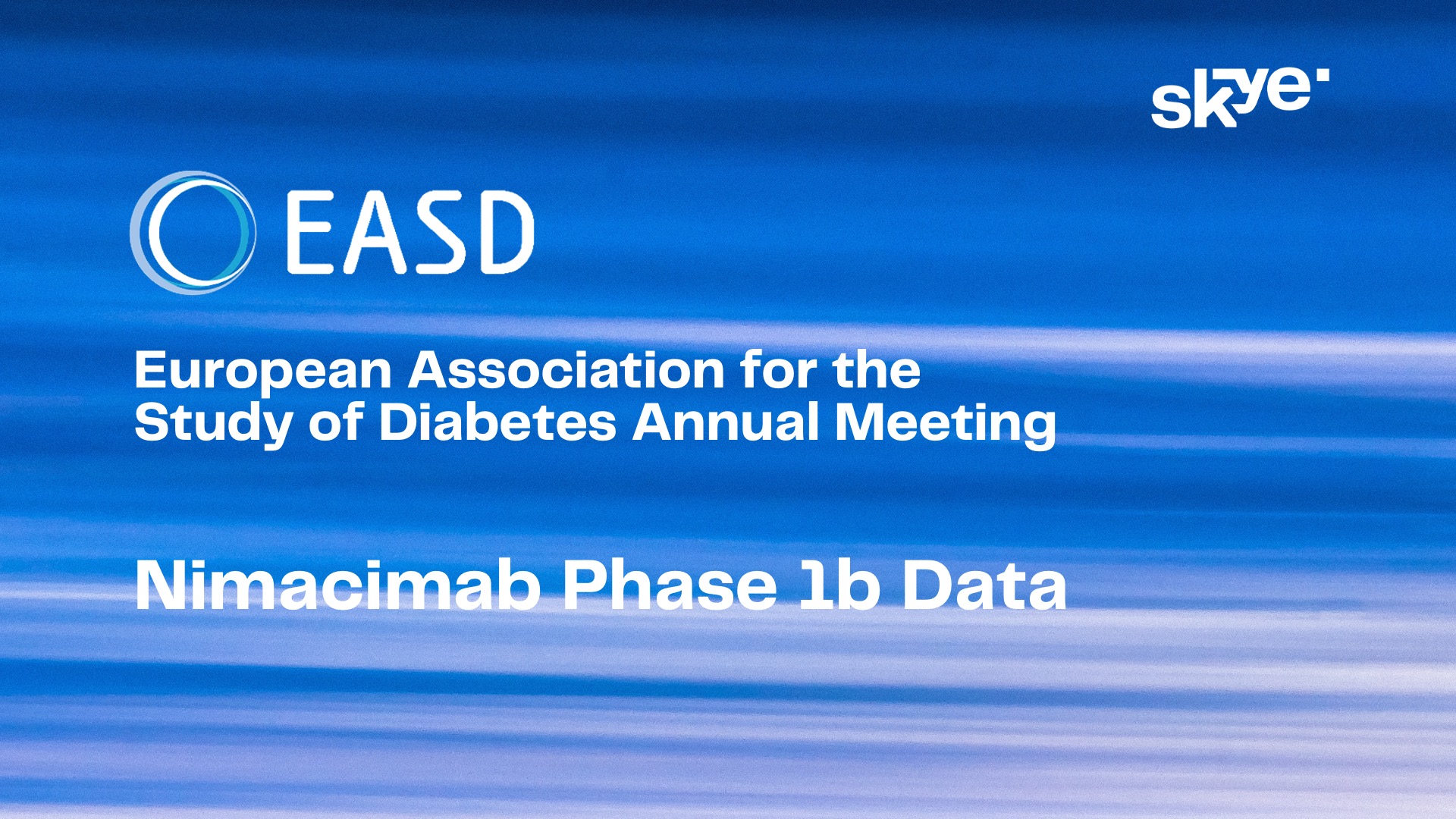
Skye is limitless
Nasdaq: SKYE
We are a biotechnology company developing next-generation drugs to treat obesity and other metabolic diseases.
Obesity & CB1 Inhibition
The obesity landscape awaits differentiated therapeutic mechanisms to help patients achieve healthier, sustainable weight loss and improve related metabolic conditions

Sign up to receive updates about our drug development, clinical trials and company news.
Pipeline
MOA
Disease
R&D
Phase 01
Phase 02
CB1 Receptor Inhibitor
Obesity
R&D
Phase 01
Phase 02
Nimacimab
Phase 2: Nimacimab






